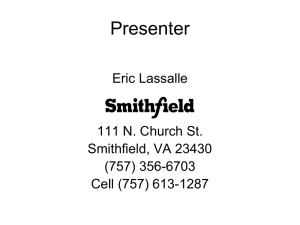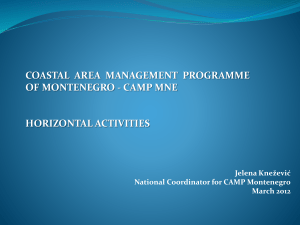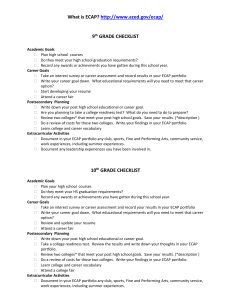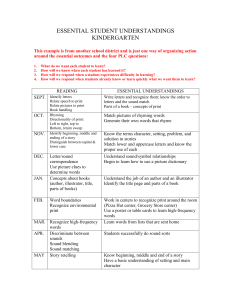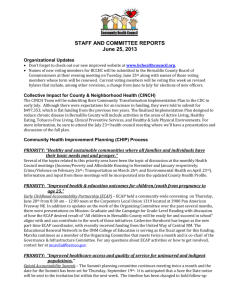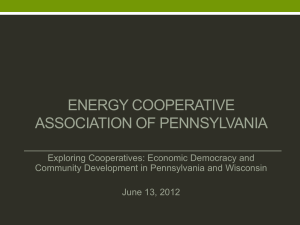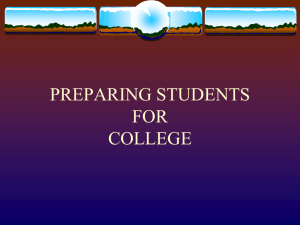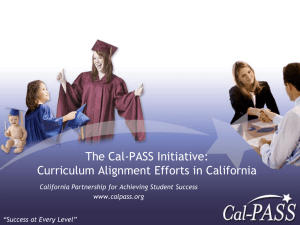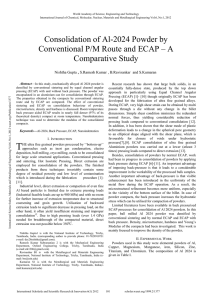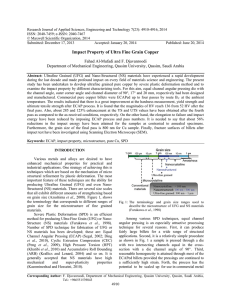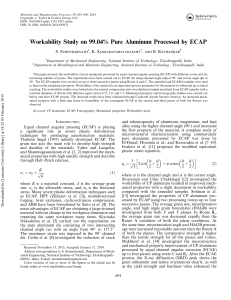FY15 Child Well-being Reporting WV Philippines
advertisement
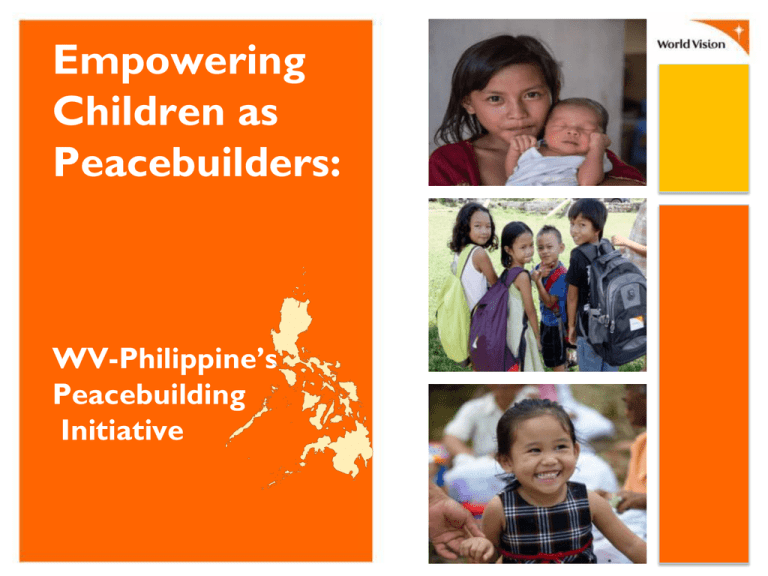
Empowering Children as Peacebuilders: WV-Philippine’s Peacebuilding Initiative Who is World Vision? •100 countries worldwide •7 regions •18 National Offices in Asia Sectors and Ministries: Education Health and Nutrition Economic Resilience and Livelihood Peacebuilding HEA Advocacy World Vision is a global Christian relief, development and advocacy organisation dedicated to working with children, families and communities to overcome poverty and injustice. World Vision serves all people, regardless of religion, race, ethnicity, or gender. Peacebuilding Models and Initiatives Implementing Countries Lebanon Colombia Kenya Cambodia Korea India Sri lanka Philippines Indonesia The Global Pax Net Peacebuilding and Conflict Sensitivity Tools 1 Do No Harm 2 Making Sense of Turbulent Contexts Project Models/Frameworks Empowering Children as Peacebuilders (EcAP) Model ECaP stands for Empowering Children as Peacebuilders. It is a WV initiative which aims to empower children as agents of transformed relationships in their families & community notwithstanding differences in ethnicity, belief, tradition, culture, faith and gender. Contextualization of EcAP Model: Initiatives in the WV Partnership WV-Cambodia Peace Road Programme ( Using the Peace Road Curriculum developed by WV Cambodia in partnership with the MoEYs Curriculum department WV-Philippines EcAP (Empowering Children as Peacebuilders) thru developing Culture of Peace (CoP) Program Why EcAP in the Philippines? 34 provinces 32 cities 47 ADPs 6 PNS 97,768 registered children & 10, 784,242 people in impact areas Geographic: •Conflict Areas -Armed Conflict -Sociocultural/religious/ethnic Economic: * Poverty Argument (Causes of Trafficking, Child Labor & other issues affecting children LEGEND Luzon Visayas Mindanao Haiyan response areas Language Diversity: * 170 Dialects and languages The Contextualized EcAP Model 1 Components (EcAP Module) •Culture of Peace •Do No Harm Understanding a Culture of Peace Looking at History Understanding Conflict Dialogue The Contextualized EcAP Model How are Children Engaged? Children are key actors and players: • • • Trainers Training for Children conducted by WVDF-Trained Child Leaders Child-Led Local Capacity Workshops Contextualization of EcAP Modules Outcomes EcAP Model mainstreamed in 44 ADPs Child-Led Peace Forum/Dialogues/Consultati ons conducted (national and local levels) Participation to International Events (Example: On the 6th ASEAN Ministerial Conference on DRR in Bangkok Thailand) National Level: Institutional partnership with DepEd thru a signed MoA (Peacebuilding in Schools) Outcomes Local Levels: Interfaith/Inter-church groups Teachers as School-Based Peace Coordinators PTAs/SMCs LGUs EcAP Researches published and used by ADPs - Children as Voices for Peace, - Children of Multi-Faith and Culture, - This is our Reality, this is our Story, - Conflict analysis Training for Children/Youth: Considerations and Policy Options for WV Lessons Learned 1 It is important to recognize that children have potentials, we just need to tap them and give them opportunity to lead 2 Capacitating and transforming the values of children taught us adult, to be patient, simple, humble and creative 3 Partnering with children to transform the lives of other children is proven effective. Surprises 1 Conflict analysis done by children were simple but concrete 2 Children can lead other children in taking responsibility and accountabilit y, they learned from each other 3 Creativity and innovative ness seen beyond expectations by the adults 4 Children are effective advocates of their own concerns and issues EcAP Video Documentation THANK YOU!
